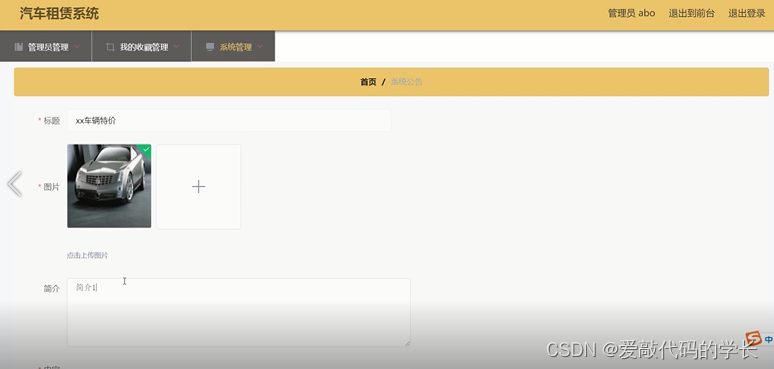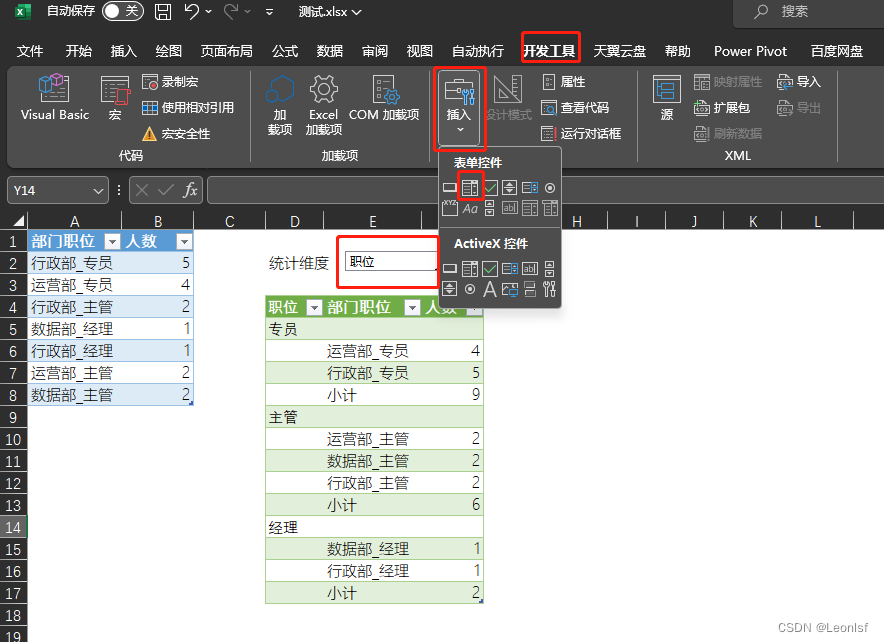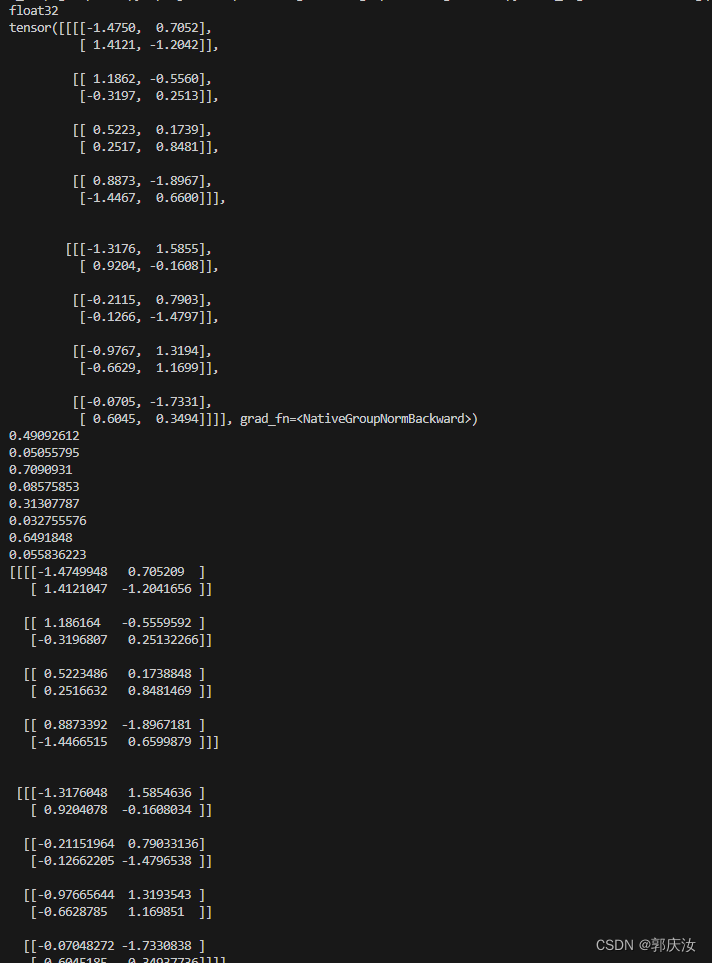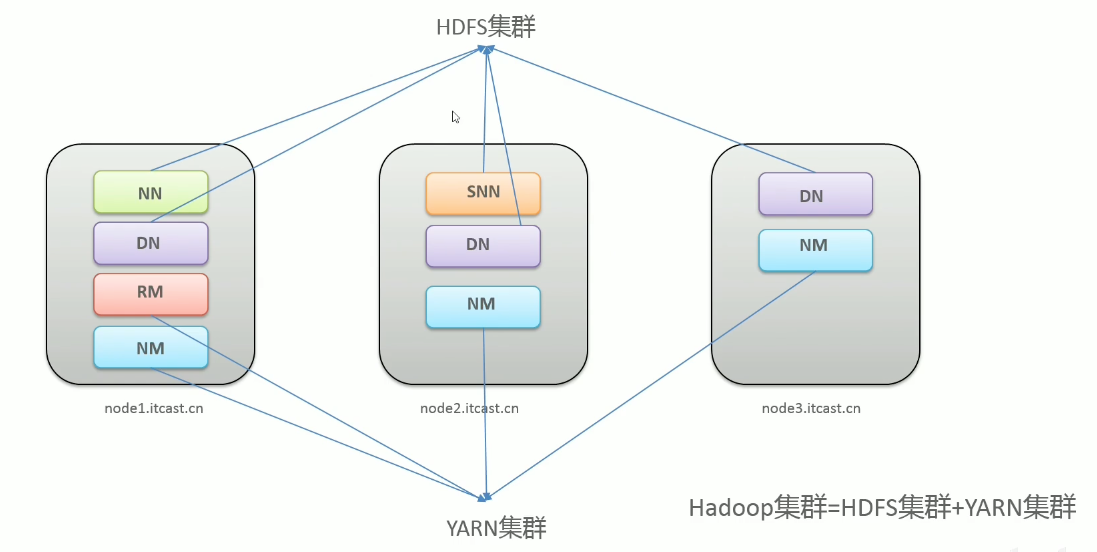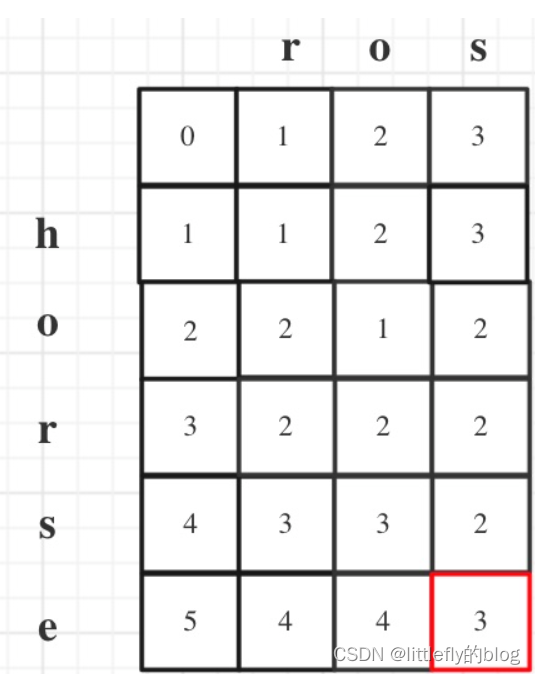*本文是博主对Java各种实验的再整理与详解,除了代码部分和解析部分,一些题目还增加了拓展部分(⭐)。拓展部分不是实验报告中原有的内容,而是博主本人自己的补充,以方便大家额外学习、参考。
(没更完,过几天补上)
一、实验目的
1、理解继承的概念;
2、掌握方法的重写;
3、掌握super、final关键字的使用;
4、掌握抽象类和接口的使用;
5、掌握多态的使用;
6、掌握内部类的使用;
7、掌握异常处理方式,能够自定义异常类;
8、了解Object类。
二、实验内容
1、实验题目:类的继承和方法重写
定义一个基类作为父类,再定义一个继承父类的子类,在子类中重写父类的方法,使用super关键字调用父类的方法,测试其功能。
本题是类的继承的练习。在继承中,super关键字可以在子类中调用父类的成员变量、成员方法和构造方法。注意:在子类构建的过程中,会调用父类的构造方法。默认情况下,子类会调用父类无参的构造方法:super()。
源代码:
public class S4_1 {
public static void main(String[] args) {
//创建一个Animal对象
Animal animal = new Animal("动物");
//调用父类的方法
animal.show();
animal.say();
//创建一个Cat对象
Cat cat = new Cat("小猫!");
//调用重写的父类的方法
cat.show();
cat.say();
}
}
class Animal {
public String name;
public int age;
public Animal(String name) {
this.name = name;
}
public void show() {
System.out.println("一个Animal类!");
}
public void say() {
System.out.println("你好" + name);
}
}
class Cat extends Animal{
public Cat(String name) {
//调用父类的构造方法
super(name);
}
public void show() {
super.show(); //调用父类的方法
System.out.println("父类的age是:"+super.age); //调用父类的age成员变量
System.out.println("一个Cat类!");
}
public void say() {
super.say(); //调用父类的方法
System.out.println("喵喵" + name);
}
}列出测试数据和实验结果截图:

2、定义一个类,在类中声明成员变量和成员方法,尝试使用final关键词修饰类中的变量、方法及该类,测试并查看结果,必要时加以注释。
1、没有final修饰时:
public class S4_2 {
public static void main(String[] args) {
Child child = new Child();
child.print();
}
}
class Father {
String name;
int age;
void print(){
System.out.println("hello world!");
}
}
class Child extends Father{
public Child(){
super();
}
void print(){
System.out.println("goodbye!!");
}
}调用了子类重写父类的方法print(),并成功输出子类的方法内容。
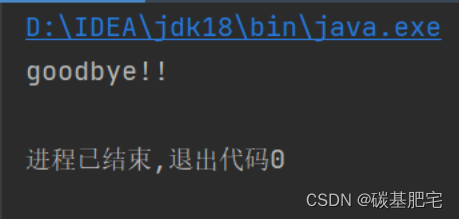
2、有final修饰父类中的方法时
class Father {
String name;
int age;
final void print(){
System.out.println("hello world!");
}
}
class Child extends Father{
public Child(){
super();
}
void print(){
System.out.println("goodbye!!");
}
}程序报错,无法正常运行。因为被final修饰的方法不能被子类重写。

3、final修饰变量
public class S4_2 {
public static void main(String[] args) {
final double PI = 3.14;
PI = 666;
System.out.println("PI is "+PI);
}
}PI被final修饰,此时PI为常量,必须在定义时赋值且只能赋值一次,在运行时值不能改变。
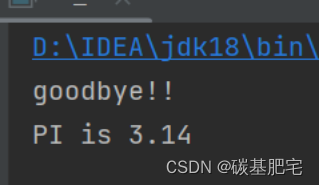
如图,当为PI第二次赋值时,程序会报编译错误。
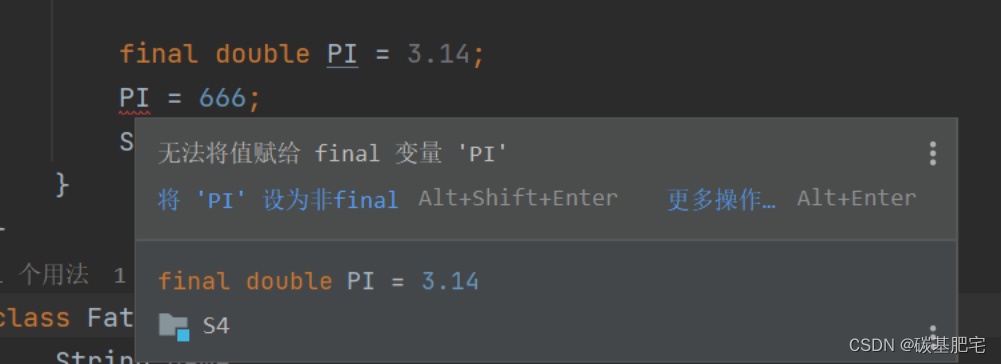
4、final修饰类
final class Father {
String name;
int age;
void print(){
System.out.println("hello world!");
}
}
class Child extends Father{
public Child(){
super();
}
void print(){
System.out.println("goodbye!!");
}
}由于final修饰的类不能被继承,因此在父类Father前用final修饰,继承操作会报编译错误。

3、实验题目:研究生薪资管理
(注:在职研究生继承学生类,实现雇员接口)
在学校中,学生每个月需x要交相应的生活费(2000元),雇员每个月有相应的工资(1000~3000随机生成),而在职研究生(on-the-job postgraduate)既是雇员又是学生,所以在职研究生既需要交学费又会有工资。下面要求编写一个程序来统计在职研究生的收入与学费,如果收入无法满足交学费,则输出“撸起袖子加油干!”信息。(思考:如果使用抽象类,是否能完成该要求?)
import java.util.Scanner;
public class S4_3 {
public static void main(String[] args) {
System.out.println("请输入该研究生姓名:");
Scanner in = new Scanner (System.in);
String name = in.nextLine();
postGraduate s = new postGraduate();
s.setName(name);
System.out.println("请输入该研究生学费:");
int fee =in.nextInt();
s.setFee(fee);
System.out.println("请输入该研究生薪资:");
int salary=in.nextInt();
s.setSalary(salary);
if(s.getSalary() >= s.getFee()) {
System.out.println("薪资超过学费");
}else{
System.out.println("撸起袖子加油干!");
}
}
}
class Student {
private String name;
private int fee;
public void setFee(int fee) {
this.fee=fee;
}
public int getFee() {
return fee;
}
public void setName(String name) {
this.name=name;
}
public String getName() {
return name;
}
}
interface Salary{
public abstract void setSalary(int salary);
public abstract int getSalary();
}
class postGraduate extends Student implements Salary {
private String name;
private int fee;
private int salary;
public void setSalary(int salary) {
this.salary=salary;
}
public int getSalary() {
return salary;
}
}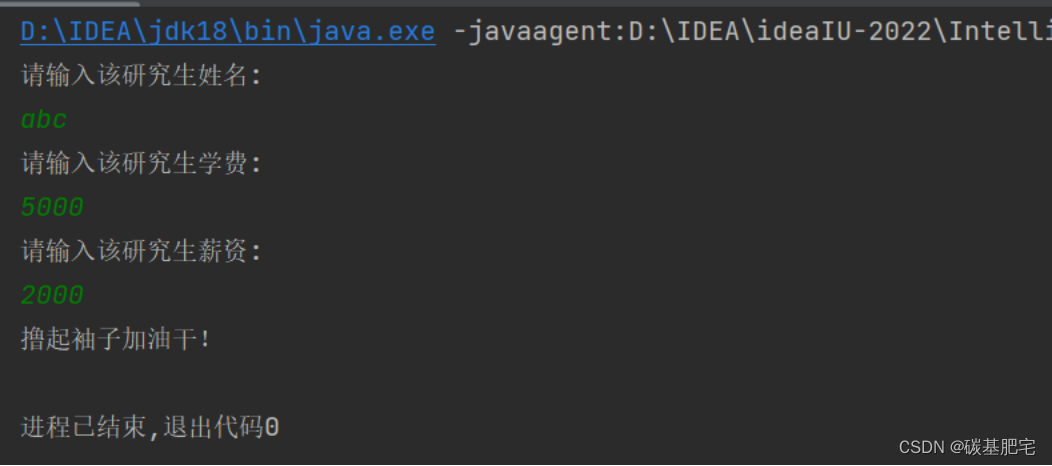
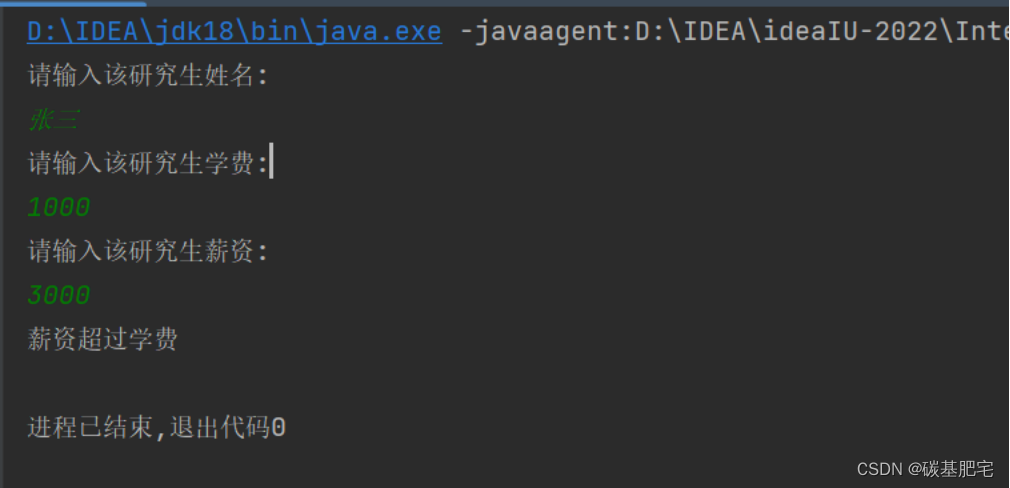


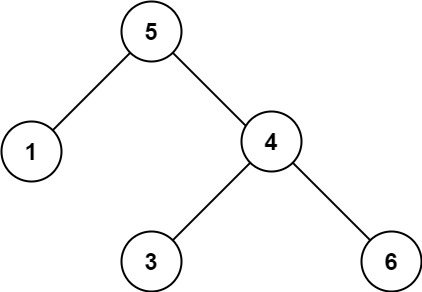
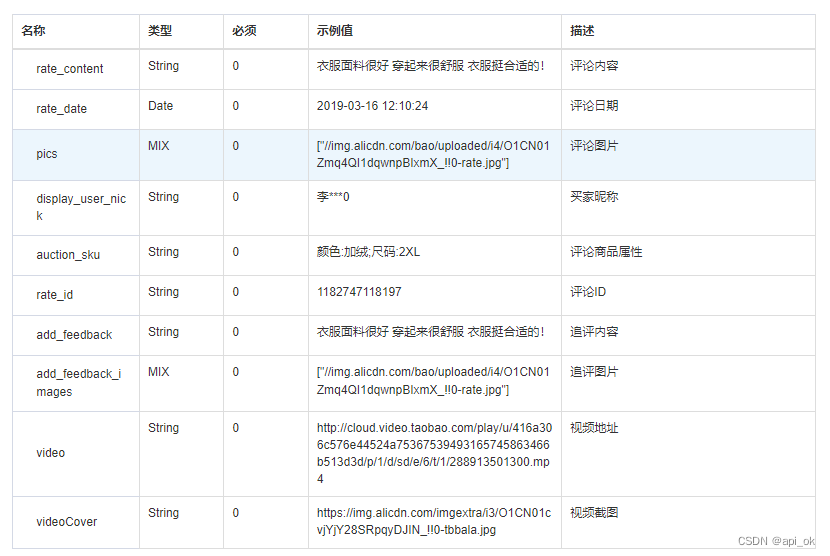
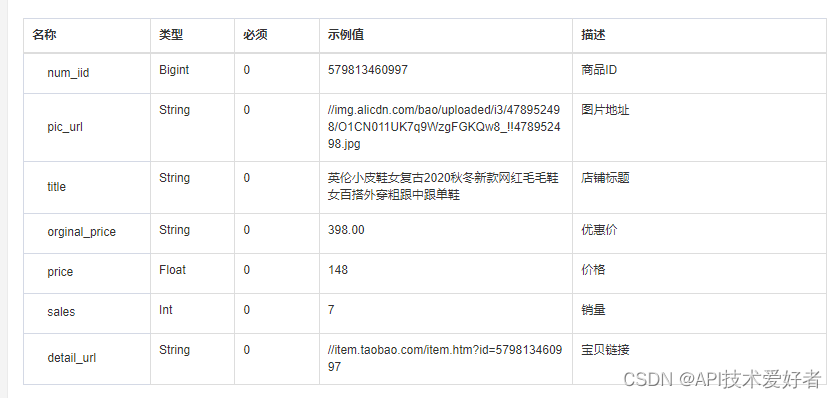
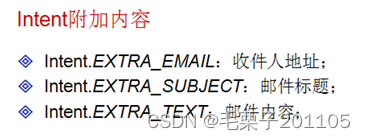
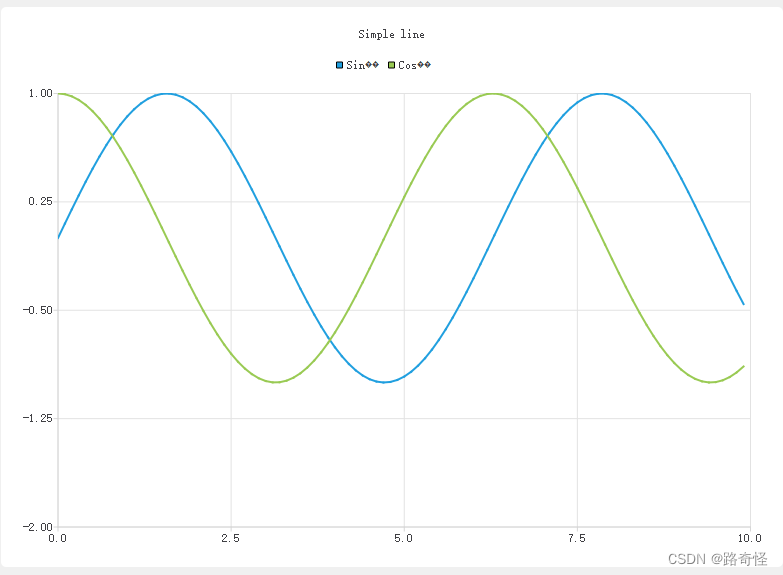

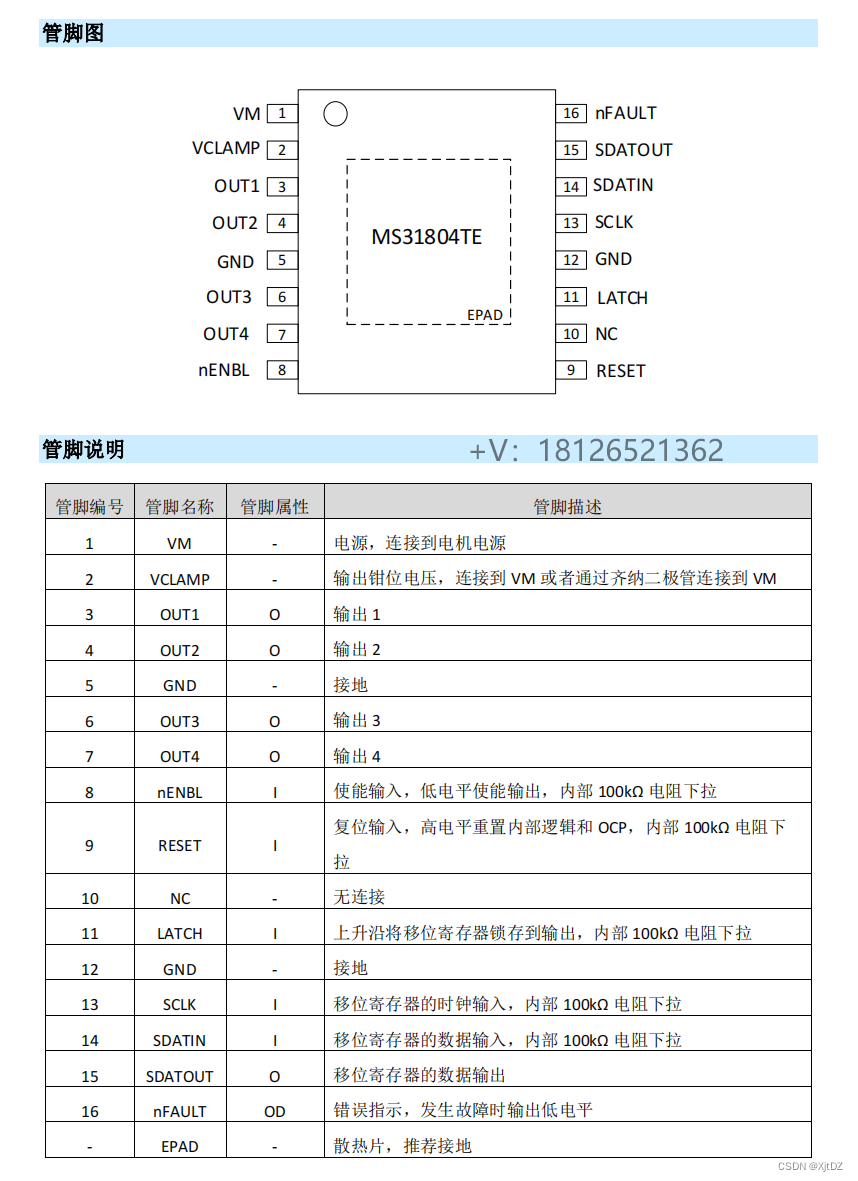
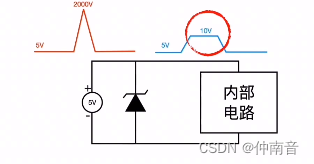
![[ACTF2020 新生赛]Exec1](https://img-blog.csdnimg.cn/aaf7f23661c94b068693ab63618e524c.jpeg)
